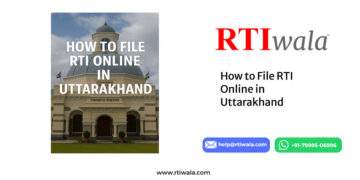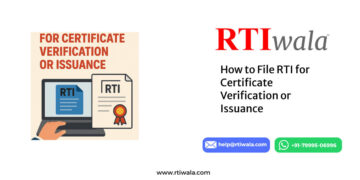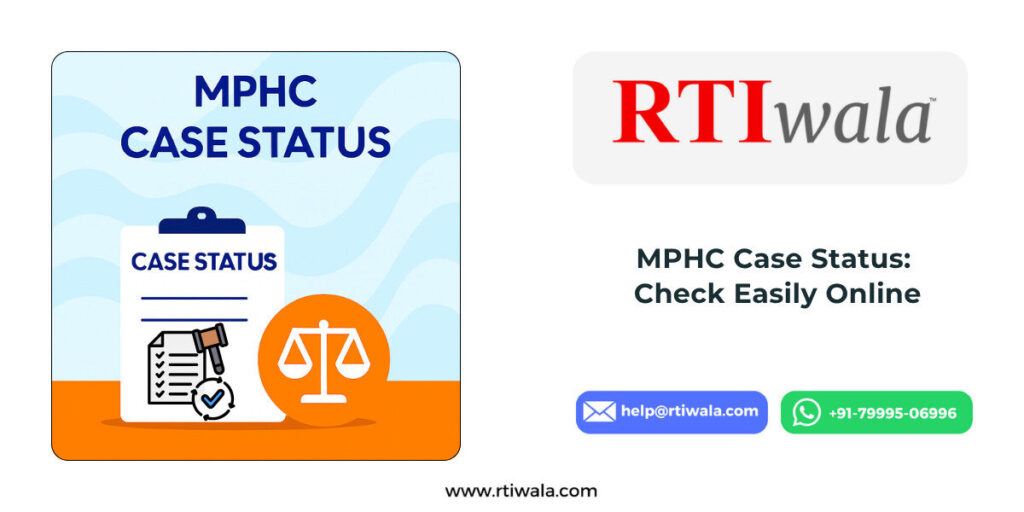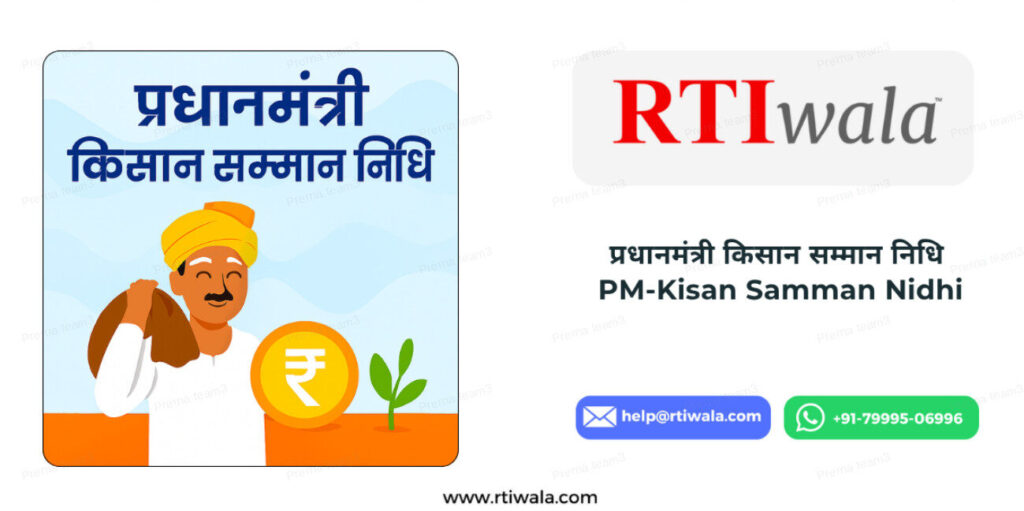Table Of Content
Introduction
The Right to Information (RTI) Act, 2005 empowers Indian citizens to seek information from government bodies and ensure accountability. But when it comes to filing an RTI, a big question arises:
Should you file your RTI online or go the offline route?
Both methods are legally valid, but they differ greatly in terms of convenience, speed, cost, and effectiveness.
In this article, we’ll break down the key differences between Online and Offline RTI, list the advantages and drawbacks of each, and help you decide which method is better suited for your situation. We’ll also explain how RTIwala ensures successful filing—whichever route you choose.
What is Online RTI?
Online RTI is the process of filing a Right to Information application through a digital portal or platform, without using physical forms or post offices.
Common platforms:
- rtionline.gov.in – for Central Government departments
- State RTI portals – for select state-level offices
- RTIwala – for Central, State, Municipal, and even autonomous bodies
What is Offline RTI?
Offline RTI refers to the traditional method of filing RTI through handwritten or typed applications sent via registered post or speed post to the concerned Public Information Officer (PIO).
It requires:
- A printed application
- ₹10 IPO (Indian Postal Order) or demand draft
- A visit to the post office
Online RTI vs Offline RTI: A Comparative Table
| Feature | Online RTI | Offline RTI |
|---|---|---|
| Convenience | File from home in 5–10 mins | Visit to post office & form filling required |
| Time Taken | Instant submission | 3–7 days delivery time via post |
| Cost | ₹10 (plus digital payment convenience fee) | ₹10 + printing + postage (~₹35–₹50) |
| Tracking | Real-time tracking available | Limited—postal tracking only |
| Coverage | Only central departments on govt portal, full via RTIwala | All departments (if you know the exact address) |
| Risk of Rejection | Lower with expert support like RTIwala | Higher due to manual errors |
| Language Support | English, Hindi, and regional (depends on portal) | Any Indian language allowed |
| Best For | Fast, accessible, tech-friendly users | Areas with no internet or digital payment access |
Pros and Cons of Online RTI
Advantages:
- Quick and easy filing from home
- Fast processing and delivery
- No paperwork or post office hassles
- Easy to file First Appeal if needed
- Secure, with instant confirmation
Disadvantages:
- Government portals don’t support many state or local departments
- Payment gateway issues on some portals
- Not beginner-friendly without guidance
Pros and Cons of Offline RTI
Advantages:
- Accepted across all government departments
- No need for internet access
- Flexible in terms of language and attachments
Disadvantages:
- Slow and cumbersome
- Requires accurate address of PIO
- Difficult to track and prone to delays/loss in transit
- Higher chances of rejection due to poor drafting
Why Choose RTIwala for Both Online and Offline RTI?
Whether you prefer digital or traditional filing, RTIwala has you covered.
Here’s how RTIwala ensures successful and professional RTI filing:
- Online RTI: File instantly with expert-written queries
- Anonymous RTI: Ideal for sensitive or whistleblower cases
- Offline RTI Drafting & Postal Filing: We draft and post it for you (available via custom request)
- Custom Department Identification: We help you locate the correct PIO/address
- Follow-up Add-ons: Support for First Appeals and legal follow-through
Whether you’re filing against delayed pensions, exam results, FIRs, land disputes, or government tenders, RTIwala helps you choose the best format and strategy for your case.
Real-World Examples
A student waiting for university exam revaluation results used RTIwala’s online service to get a reply in 18 days from UGC.
A villager from Madhya Pradesh with no internet access used RTIwala’s offline drafting and postal filing support to file RTI about rural housing scheme delays—and got the sanction order in 5 weeks.
Final Verdict: Which One Should You Choose?
| Choose Online RTI if: | Choose Offline RTI if: |
|---|---|
| You have internet access and digital payment options | You live in a remote area or lack digital access |
| You’re filing to central ministries or supported states | You’re filing to Panchayats, municipal councils, or local departments |
| You need faster results and easy tracking | You need flexibility in format or language |
Pro Tip: If you’re unsure or the issue is critical, go with RTIwala. Their team helps you choose the right format, file it correctly, and even follow up until you get answers.
RTIwala Services You Can Use Today
Expert Consultation
Personal guidance to choose the right filing method and strategy.
Online RTI
Submit RTI instantly with 100% support and real-time tracking.
Anonymous RTI
Perfect for corruption cases, sensitive queries, and whistleblowing.
Custom Drafting
Avoid rejections and delays with professionally written queries.
RTIwala Products
Get follow-ups, First Appeals, combo plans and more under one roof.
Final Thoughts
Online or offline—RTI is your right. Use it smartly.
Each method has its benefits and drawbacks, but what matters most is filing your query clearly, accurately, and fearlessly. With platforms like RTIwala, you no longer have to navigate the legal maze alone.
Empower yourself. File confidently. File with RTIwala.






















































